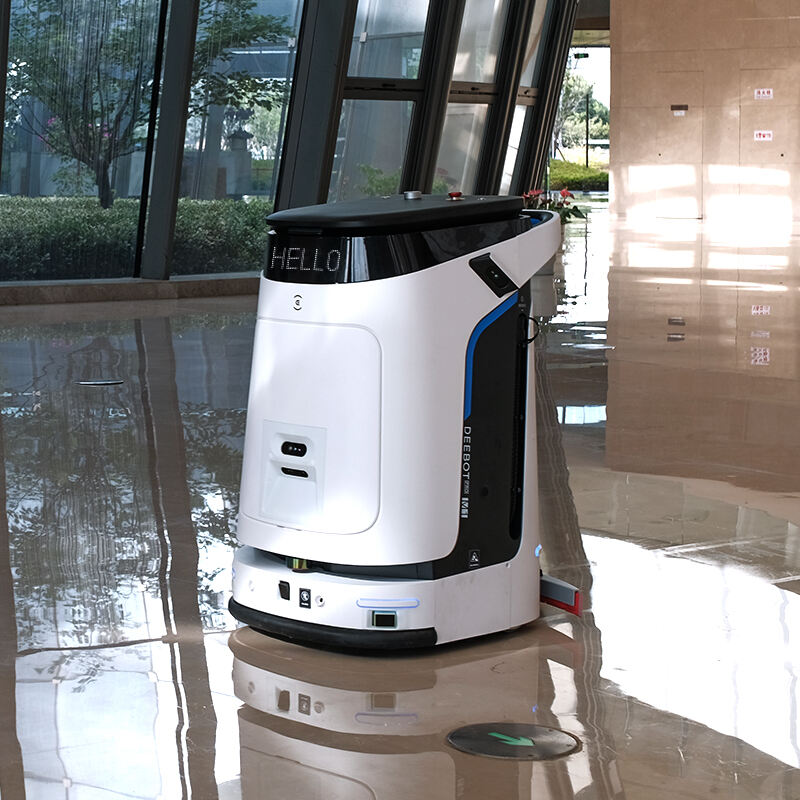Mastering Professional Floor Maintenance Equipment
The efficient operation of a commercial floor cleaning machine stands at the heart of professional facility maintenance. Whether you're managing a retail space, warehouse, or office building, proper training ensures not only spotless floors but also extends equipment life and enhances workplace safety. This comprehensive guide explores essential training protocols, maintenance procedures, and great practices for maximizing your cleaning equipment investment.
Essential Training Components for Equipment Operation
Safety Protocols and Pre-Operation Checks
Before operating a commercial floor cleaning machine, operators must understand fundamental safety procedures. This includes conducting thorough pre-operation inspections of power cords, batteries, solution tanks, and mechanical components. Training should emphasize proper personal protective equipment (PPE) usage, including non-slip footwear, eye protection, and appropriate work gloves.
Operators need to learn how to assess the working environment, identifying potential hazards like wet surfaces, obstacles, or foot traffic areas. Understanding emergency shut-off procedures and knowing when to halt operations due to equipment malfunction or safety concerns is crucial for preventing accidents and injuries.
Machine Control and Maneuvering Techniques
Proper control of a commercial floor cleaning machine requires both theoretical knowledge and hands-on practice. Operators should master starting and stopping procedures, speed control, and turning techniques in open areas before attempting more challenging spaces. Training should cover different walking patterns for various floor layouts and how to maintain consistent cleaning results while navigating around obstacles.
Special attention must be given to edge cleaning, corner approaches, and transitioning between different floor surfaces. Operators need to understand how to adjust machine settings for optimal performance based on floor type and soil level.

Maintenance and Troubleshooting Guidelines
Daily Maintenance Requirements
Regular maintenance is vital for the longevity of commercial floor cleaning machines. Daily procedures should include emptying and cleaning solution tanks, checking and cleaning brushes or pads, and inspecting squeegees for wear or damage. Operators must learn proper cleaning techniques for filters and ensuring all components are thoroughly dried before storage.
Training should emphasize the importance of maintaining proper solution levels, using manufacturer-recommended cleaning agents, and following correct dilution ratios. Understanding how to properly clean and store batteries, if applicable, is essential for maintaining optimal performance.
Common Issues and Solutions
Effective troubleshooting skills can prevent costly downtime and repairs. Operators should be trained to recognize common problems such as uneven cleaning patterns, water streaking, or unusual noise. Understanding basic diagnostic procedures helps identify whether issues are related to operator technique, maintenance needs, or require professional service.
Documentation of maintenance activities and any operational issues should be part of the training program. This creates a valuable record for tracking machine performance and identifying recurring problems that may need attention.
Advanced Operating Techniques
Specialized Floor Treatment Procedures
Different flooring materials require specific cleaning approaches. Training should cover appropriate techniques for various surfaces, including vinyl, ceramic, concrete, and carpet. Operators need to understand pad or brush selection, chemical compatibility, and proper dwell times for different cleaning solutions.
Advanced training topics should include strip and wax procedures, deep cleaning methods, and specialized maintenance for high-traffic areas. Understanding how to adjust cleaning patterns and machine settings for maximum efficiency in different scenarios is crucial.
Productivity Enhancement Methods
Efficient operation of a commercial floor cleaning machine involves more than just the physical operation. Training should cover route planning, optimal cleaning patterns, and time management strategies. Operators should learn how to minimize empty trips for refilling or emptying tanks and how to coordinate cleaning schedules with facility activities.
Understanding traffic patterns and peak facility usage times helps in planning the most effective cleaning schedules. Training should also address how to maintain consistent cleaning quality while maximizing productivity.
Environmental and Sustainability Considerations
Resource Conservation Practices
Modern cleaning operations must emphasize environmental responsibility. Training should cover water conservation techniques, proper chemical usage and disposal, and energy-efficient operation methods. Operators need to understand how their cleaning practices impact the environment and how to minimize waste while maintaining cleaning standards.
Special attention should be given to using eco-friendly cleaning solutions and understanding their proper application. Training should also cover recycling procedures for cleaning materials and proper disposal of waste water.
Green Cleaning Protocols
Implementing green cleaning practices requires specific knowledge about environmentally preferred products and procedures. Operators should understand how to use concentrated cleaning solutions effectively, minimize chemical usage, and maintain indoor air quality. Training should emphasize the importance of using certified green cleaning products and following manufacturer guidelines for optimal results.
Understanding the relationship between proper machine maintenance and environmental impact helps operators make informed decisions about resource usage and equipment care.
Frequently Asked Questions
How often should operators receive refresher training?
Refresher training should be conducted at least annually, or whenever new equipment or procedures are introduced. Regular assessment of operator skills can help identify when additional training might be beneficial.
What are the most critical safety precautions when operating floor cleaning equipment?
Key safety measures include wearing appropriate PPE, maintaining awareness of surroundings, following proper startup and shutdown procedures, and ensuring all safety features are functioning correctly before operation.
How can facilities ensure consistent cleaning quality across different operators?
Implementing standardized training programs, regular performance monitoring, and maintaining detailed cleaning protocols helps ensure consistency. Regular team meetings to share great practices and address challenges also contribute to maintaining high cleaning standards.
What documentation should be maintained for training and maintenance records?
Facilities should maintain records of initial and refresher training sessions, daily maintenance logs, equipment service history, and operator certifications. This documentation helps track compliance and identify areas needing improvement in the training program.
Table of Contents
- Mastering Professional Floor Maintenance Equipment
- Essential Training Components for Equipment Operation
- Maintenance and Troubleshooting Guidelines
- Advanced Operating Techniques
- Environmental and Sustainability Considerations
-
Frequently Asked Questions
- How often should operators receive refresher training?
- What are the most critical safety precautions when operating floor cleaning equipment?
- How can facilities ensure consistent cleaning quality across different operators?
- What documentation should be maintained for training and maintenance records?

